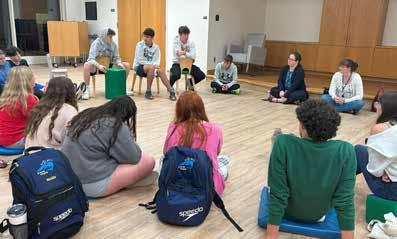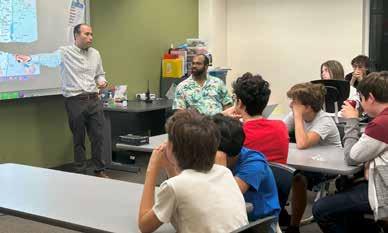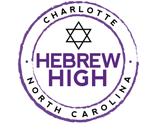
4 minute read
Hebrew High Responds to the Conflict in Israel With a Night of Dialogue, Reflection and Learning
December 2023
By Jennifer Sawyer
The brutal murders of over 1,400 Israelis and kidnapping of 239 more during an unprecedented attack by the terrorist organization, Hamas, has left the Jewish world reeling. October 7 will live in our collective memory as a day of shock and mourning.
As a teacher and parent, my primary instinct is to safeguard the well-being of the children under my care. However, the widespread dissemination of videos depicting the atrocities of war on social media has turned many of our teenagers into “eyewitnesses” to the horrors of conflict. What has become evident is the contrasting positions occupied by teens and adults.
For example, while adults have the option to leave a hostile work environment, teenagers attend schools filled with thousands of students daily — some friends, many acquaintances, most strangers, and, unfortunately, some who either hold or are easily influenced by those who hold antisemitic beliefs. Unlike adults, teenagers often lack the luxury of walking away. Adults have greater agency over our lives and choices about who we surround ourselves with.
Additionally, adults have more substantial financial resources to contribute to various Jewish causes and can influence U.S. policy towards Israel through voting. These factors provide adults with a sense of agency and empowerment in the face of helplessness.
Lastly, many of our teens are eagerly looking forward to their college experience in the fall, a time that should be filled with joy and anticipation. However, almost daily, we witness instances of antisemitism on college campuses across the nation, leaving our teenagers under more stress than ever before.
In response to these challenges, Hebrew High has collaborated with the Jewish Federation of Greater Charlotte, Temple Beth El, and Temple Israel to create a safe space for teens to process the ongoing events. For instance, many teens are taking part in the Federation-sponsored Teen Ambassadors Israel Education Fellowship through the iCenter. On the Wednesday night following the brutal attacks, we made the decision not to conduct our usual classes. Instead, we dedicated time to engaging in open conversations, learning, and processing the events in the Middle East.
Students were given the flexibility to choose activities that resonated with them, and they could transition between activities as they saw fit. Each activity was led by a clergy member from either Temple Beth El or Temple Israel, along with a Hebrew High educator, creating a secure space for teens to share their experiences and ask questions. The activities included opportunities to learn about the history of the conflict, express feelings through writing and art, and participate in grade-specific reflections that allowed our teens to share, question, express their anger, and grieve. We also had Howard Olshansky from Jewish Family Services (JFS) available for teens who wished to speak privately with a counselor.
In conversations with our students, it became evident that many of them felt isolated — isolated by indifference from their peers, shocked by the com ments and posts from people they thought they knew, hurt by an tisemitic jokes, and disheartened by the praise given to terrorists by some classmates. They were also taken aback by the varying levels of support or indifference from their school administrators. Many of our students have fami ly members in Israel, cousins on the front lines, and connections to those who have tragically lost their lives. They spoke of their Jewish pride and the solace they found in being surrounded by their community. As the evening came to a close, except for the group deeply engaged in discussing the history of the conflict, the rest of Hebrew High gathered to sing and offer prayers for peace in Israel, “Oseh Shalom,” “HaTikvah,” and a prayer for peace in Israel: Ken y’hi ratzon.












